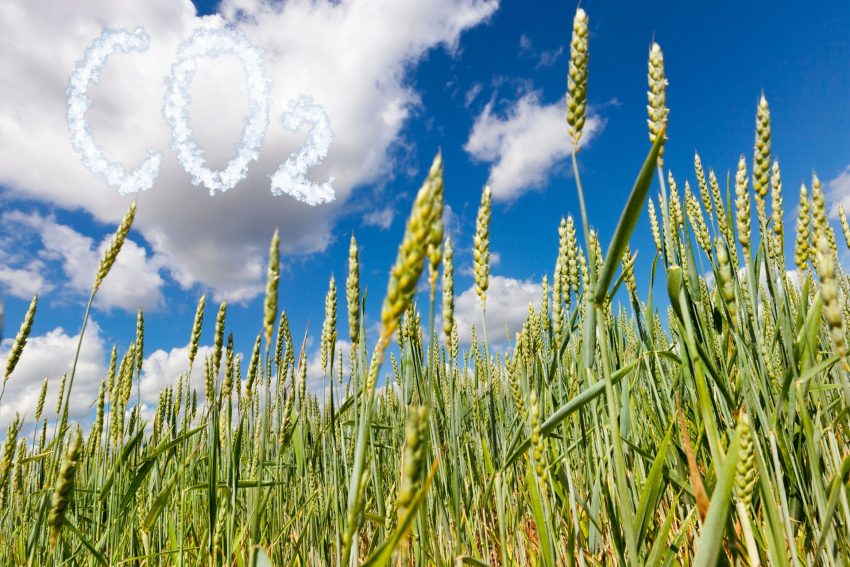A recent federal report has turned the climate change narrative on its head, revealing that rising carbon dioxide (CO2) levels are not only benefiting U.S. agriculture but also greening the planet.
U.S. DOE report disputes climate change risk to agriculture, promoting CO2 benefits for crops. Independent researcher insights included. https://t.co/94s4VDQYhb
— Capital Press (@capitalpress) August 5, 2025
Published on August 5, 2025, by Capital Press, the report states, “There is reason to conclude that on balance climate change has been and will continue to be neutral or beneficial for most U.S. agriculture.” This finding aligns with basic plant biology taught in middle school science classes and is backed by record-breaking crop yields in recent years. The evidence is clear: CO2 is a boon for plants, and those pushing to demonize it may be inadvertently advocating for a world with less food.
CO2: The Lifeblood of Plants
Middle school science teaches us that plants thrive on CO2. Through photosynthesis, plants convert CO2, water, and sunlight into energy, producing oxygen as a byproduct. Higher CO2 levels enhance this process, acting like a natural fertilizer. Increased CO2 allows plants to grow faster, produce larger yields, and use water more efficiently. It strengthens their resilience to environmental stresses like drought, as plants can close their stomata (tiny pores on leaves) more often, reducing water loss while still absorbing CO2.
The federal report highlights these benefits, noting that climate change, particularly elevated CO2 levels, contributes to “greening the planet.” Studies show a 20% increase in global vegetation over the past 30 years, largely due to CO2 enrichment. In the U.S., crops like corn, wheat, and soybeans have seen massive yield increases, with corn production, for example, soaring due to denser planting enabled by genetic modification and improved farming practices. These gains are not anomalies but the predictable outcome of CO2’s role in plant growth.
Record Yields Prove the Point
U.S. agriculture is experiencing a golden age of productivity. Over the past 50 years, wheat, maize, and rice production has increased by 1-2% annually, driven by technological advancements and the natural boost from CO2. The report underscores that these record yields are partly due to climate change, which has extended growing seasons in some regions and enhanced crop growth through CO2 fertilization. For instance, warmer temperatures and increased precipitation in areas like Kansas are projected to benefit wheat yields, despite challenges from extreme heat.
PROPAGANDA- Get ready for the next round of fear. “The Earth is drying out … we’re all going to die…. Except.
The maths and the facts actually show
▪️Over the last 50 years, wheat, maize, and rice production has consistently increased by 1-2% annually. Modern agriculture is… pic.twitter.com/ps1z1HqLOJ
— Bernie (@Artemisfornow) December 9, 2024
The data is undeniable: U.S. farmers are producing more food than ever. Total farm output nearly tripled between 1948 and 2019, even as farmland acreage decreased by over 140 million. This productivity surge has kept food prices stable and ensured a steady supply, directly contradicting claims that climate change spells doom for agriculture.
The War on CO2: A Threat to Food Security?
Despite these benefits, some continue to vilify CO2, pushing policies to slash emissions at all costs. The report’s findings challenge this narrative, suggesting that efforts to drastically reduce CO2 could harm agriculture and global food security. Plants require CO2 to survive, and historical data shows that current atmospheric CO2 levels (around 400 ppm) are low compared to past eras when levels reached 7,000-9,000 ppm, supporting lush ecosystems.
Critics of CO2 often ignore its role in feeding the world. Agriculture accounts for just 10% of U.S. greenhouse gas emissions, and farmers have already reduced emissions by adopting conservation practices that sequester 759 million metric tons of carbon annually.
Those waging war on CO2 risk undermining the very systems that sustain us. Reducing CO2 to pre-industrial levels could stunt plant growth, lower crop yields, and exacerbate hunger, particularly in developing nations. The federal report’s findings suggest that such policies are not only misguided but potentially catastrophic, as they ignore the science of photosynthesis and the real-world evidence of agricultural abundance.
A Call for Reason
The federal report is a wake-up call: CO2 is not the enemy. It’s a critical component of life on Earth, fueling the plants that feed billions. Anyone with a middle school understanding of biology knows that plants crave CO2, and the data backs it up; U.S. agriculture is thriving, and the planet is greener than it’s been in decades. Instead of demonizing CO2, we should celebrate its role in boosting crop yields and ensuring food security.
Policymakers must prioritize science over ideology. The report’s conclusion is clear: “climate change has been and will continue to be neutral or beneficial for most U.S. agriculture.” Let’s embrace this reality and support farmers in harnessing CO2’s benefits, not starving the world in a misguided crusade against it.


